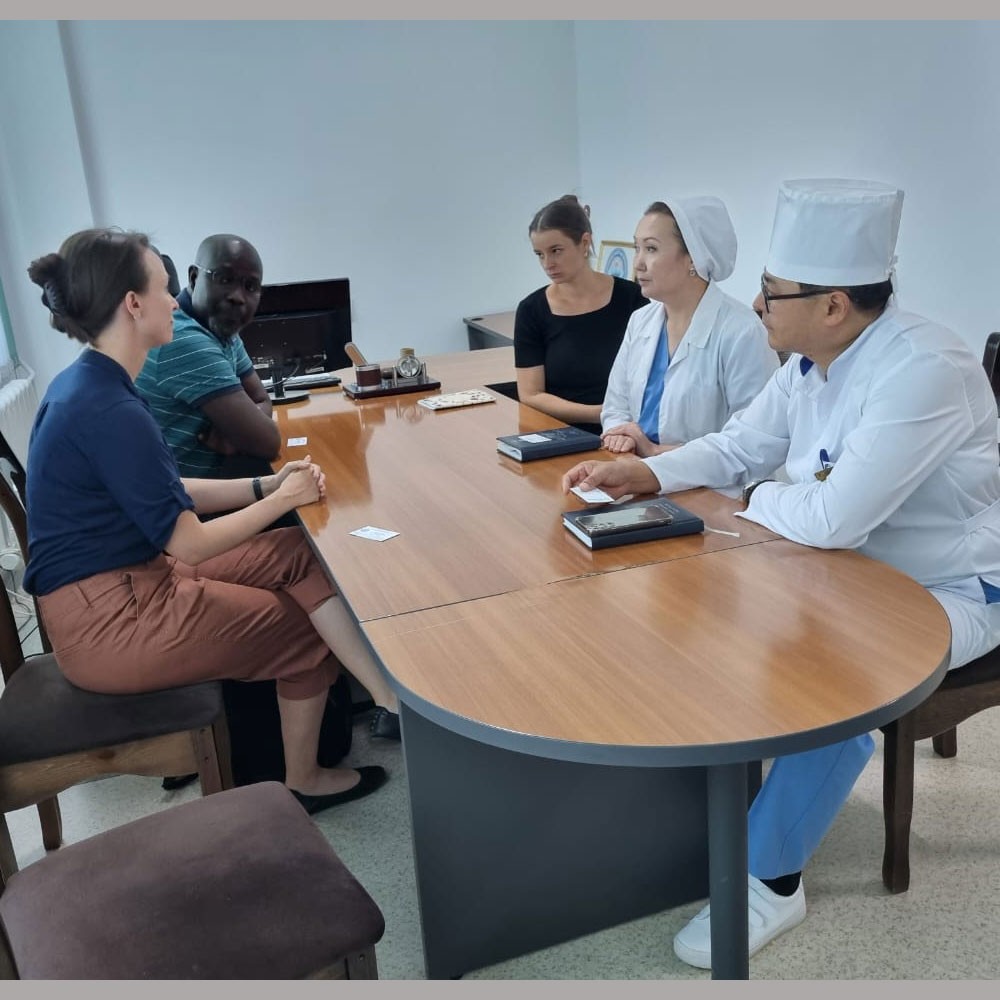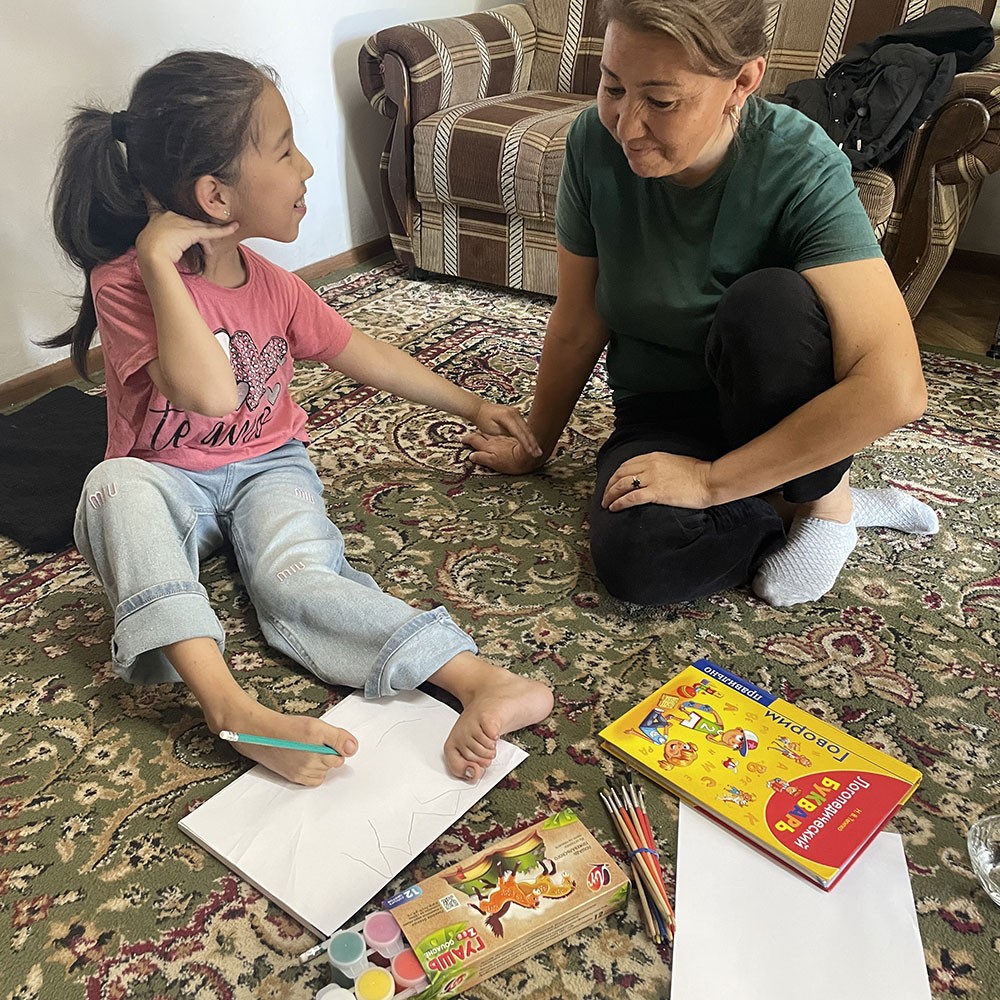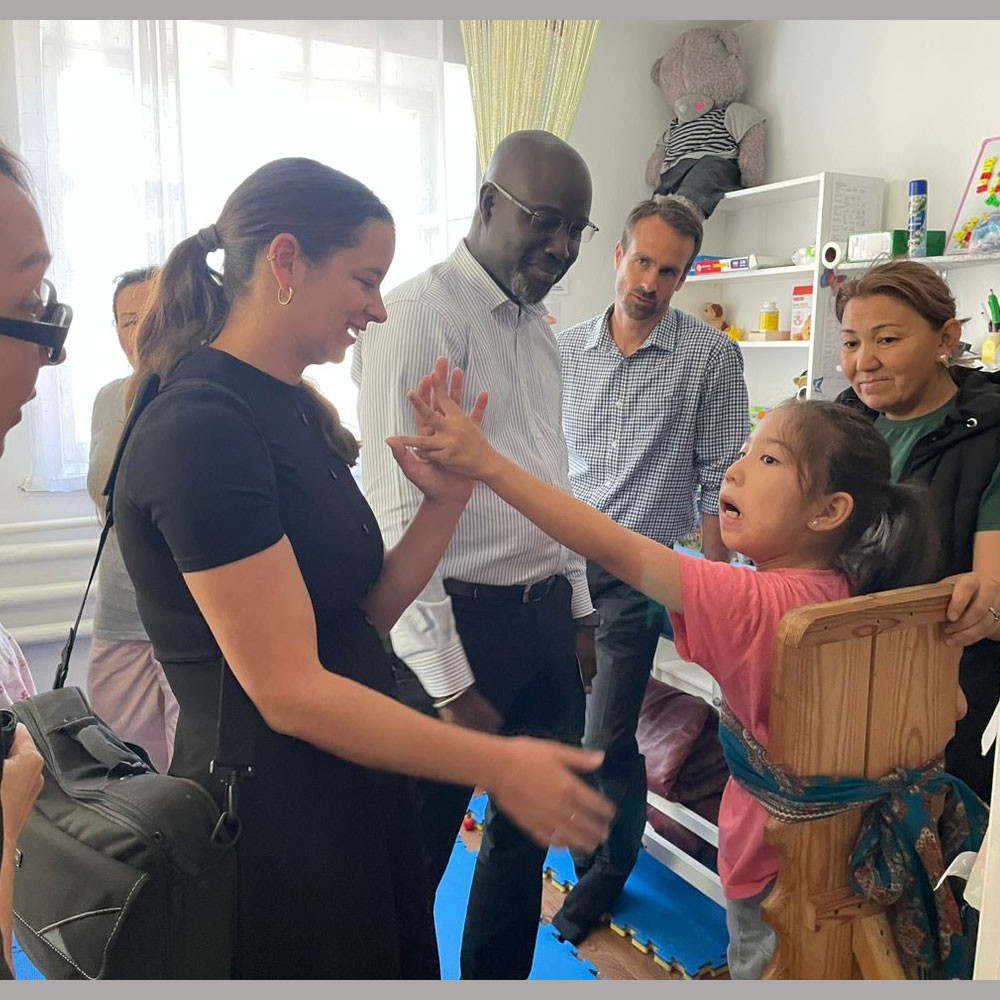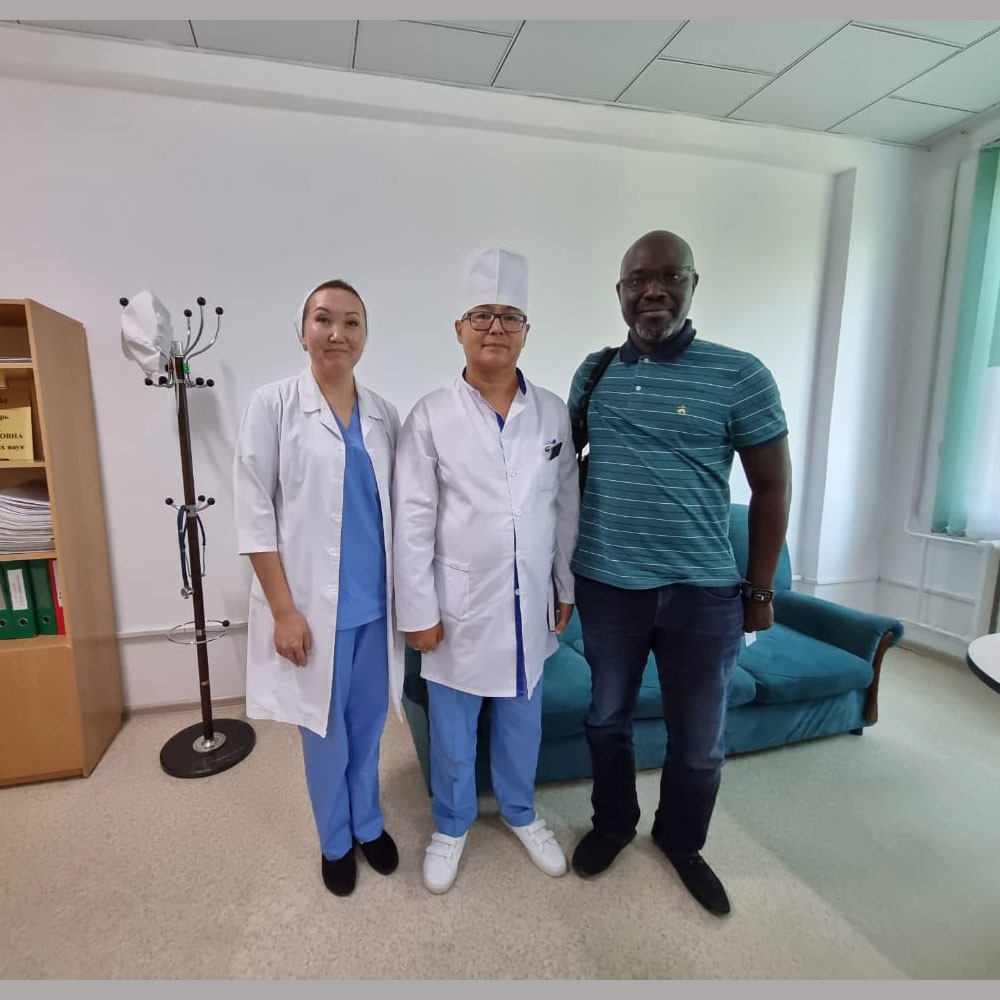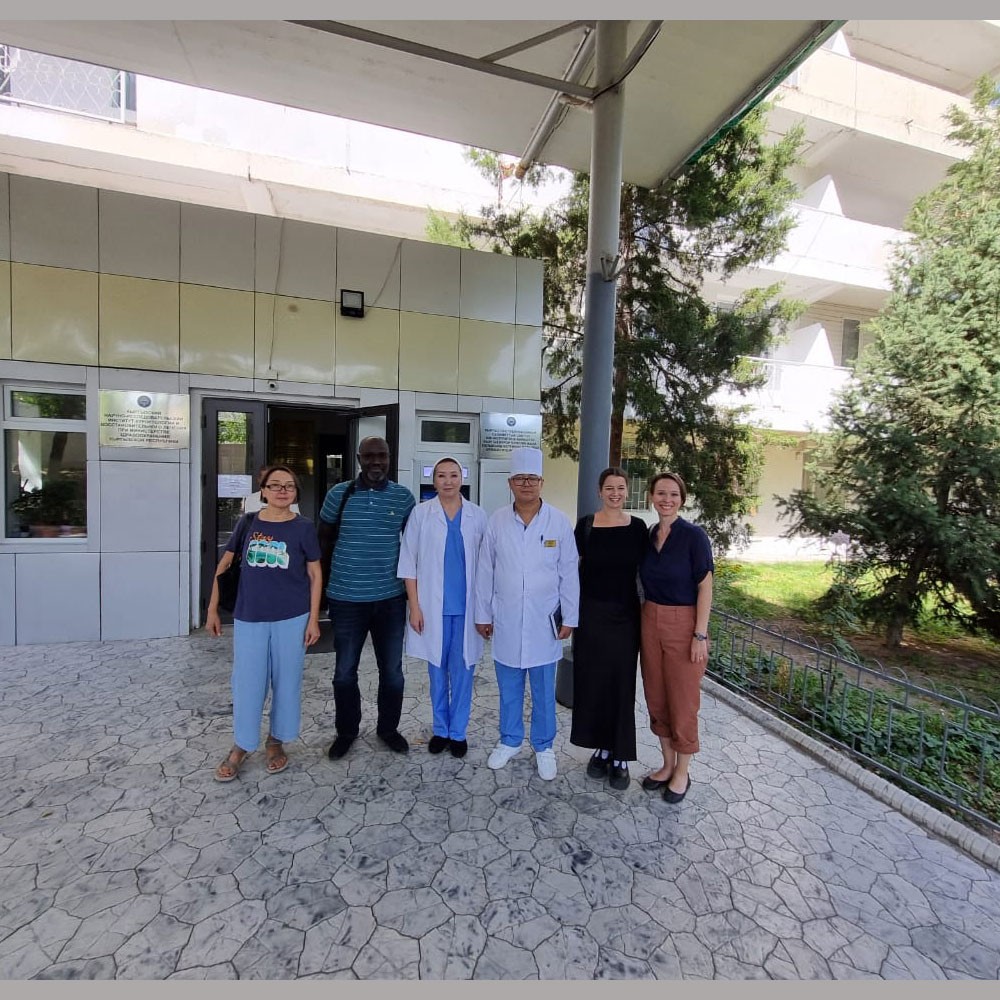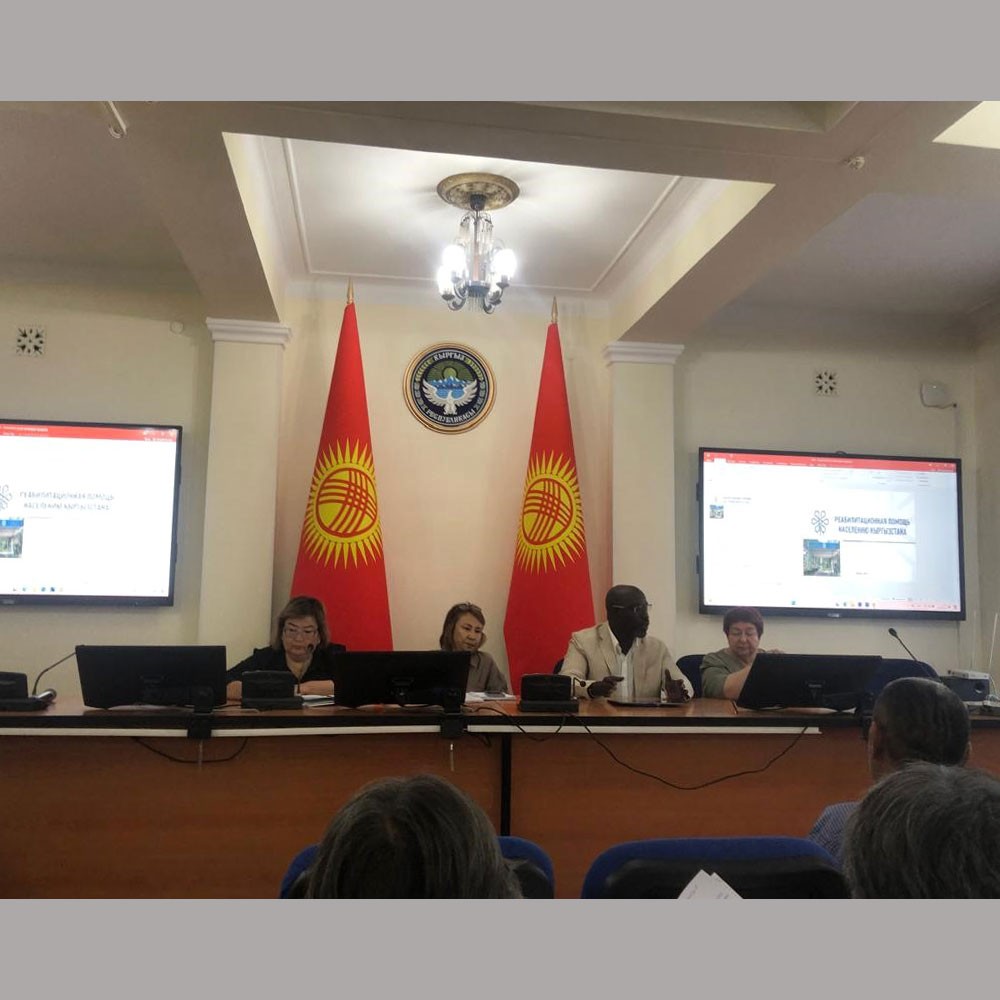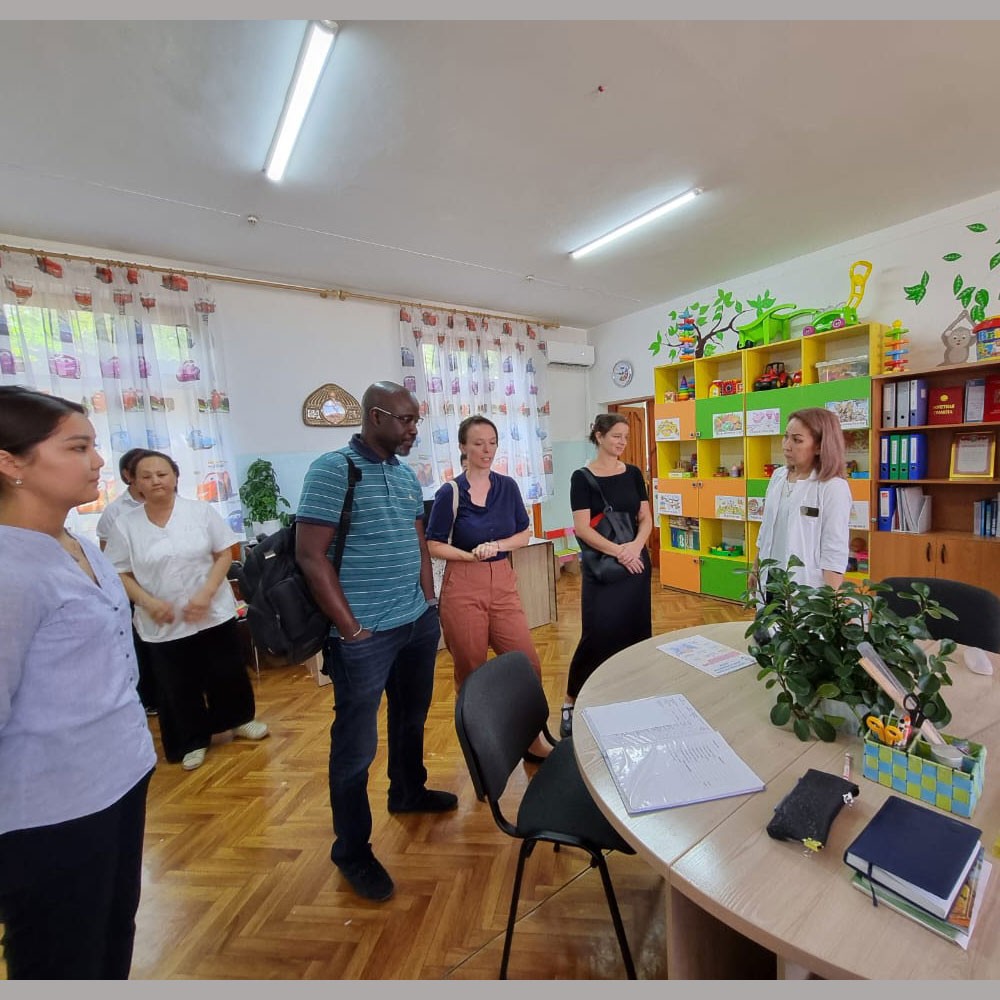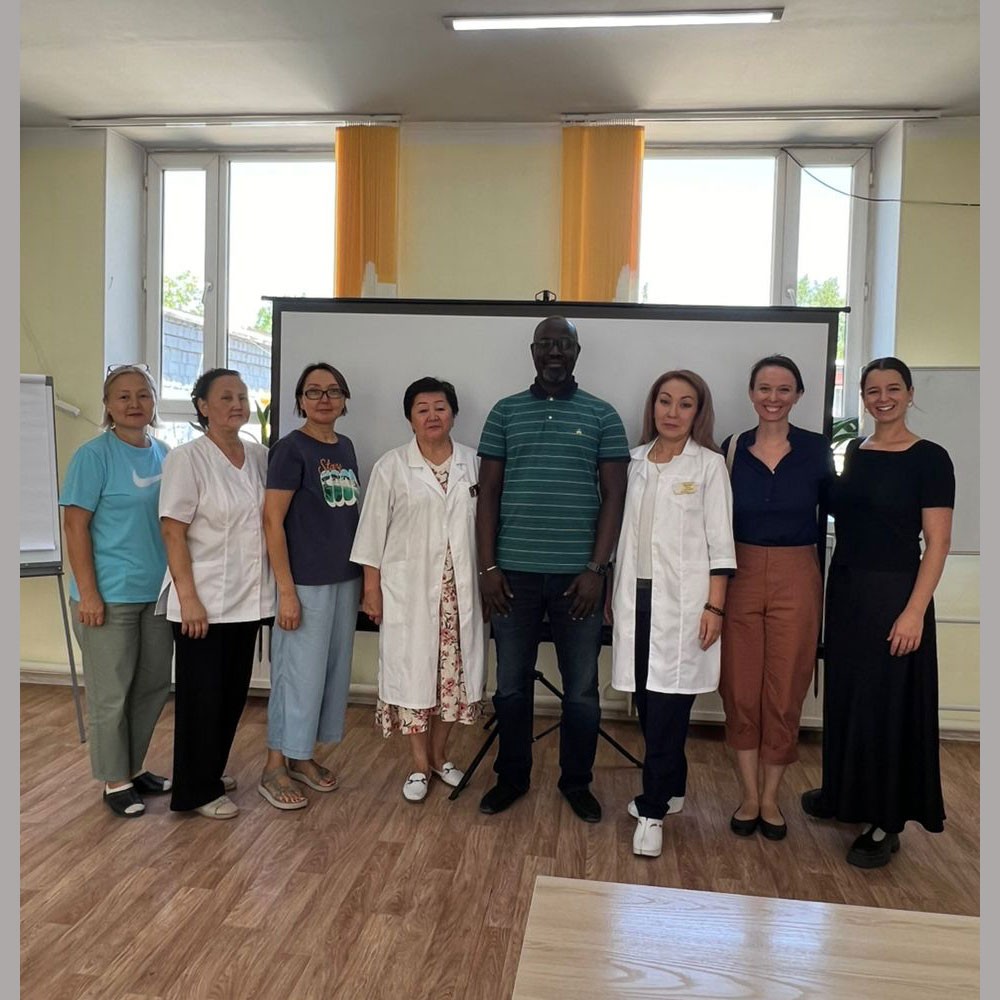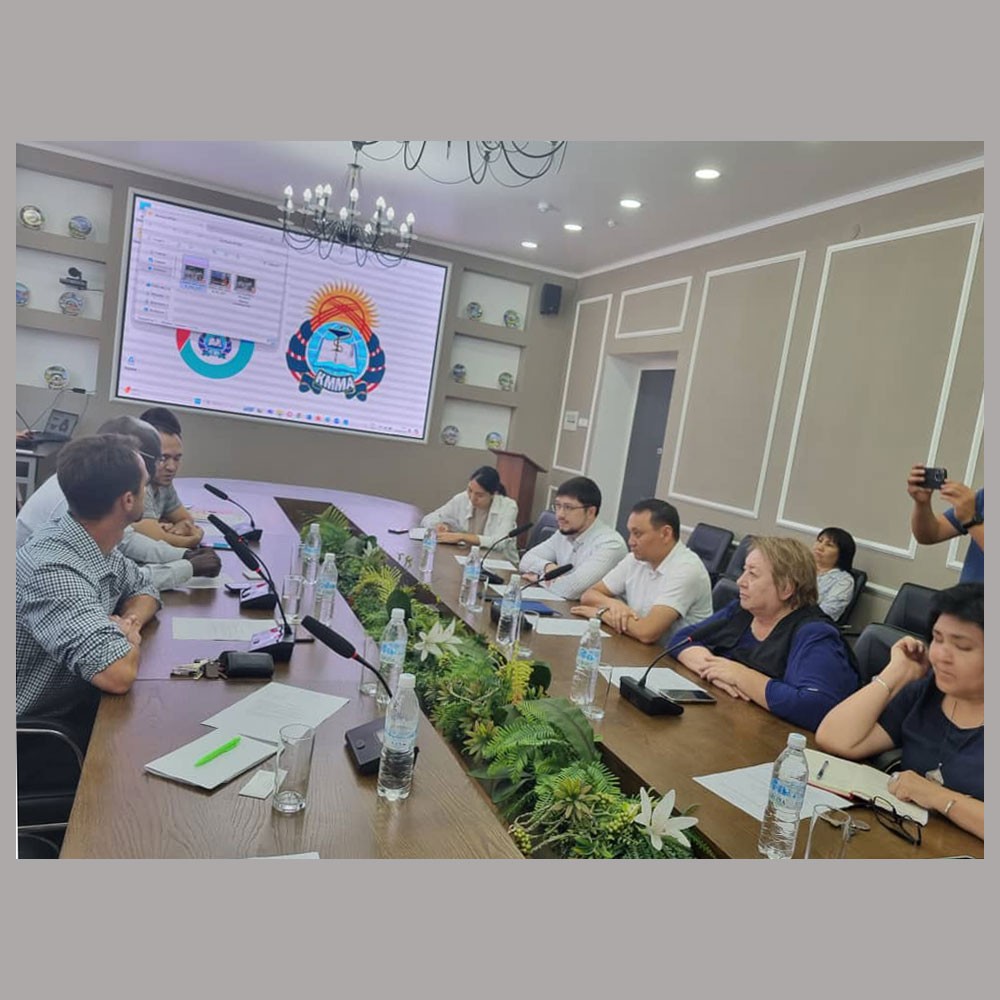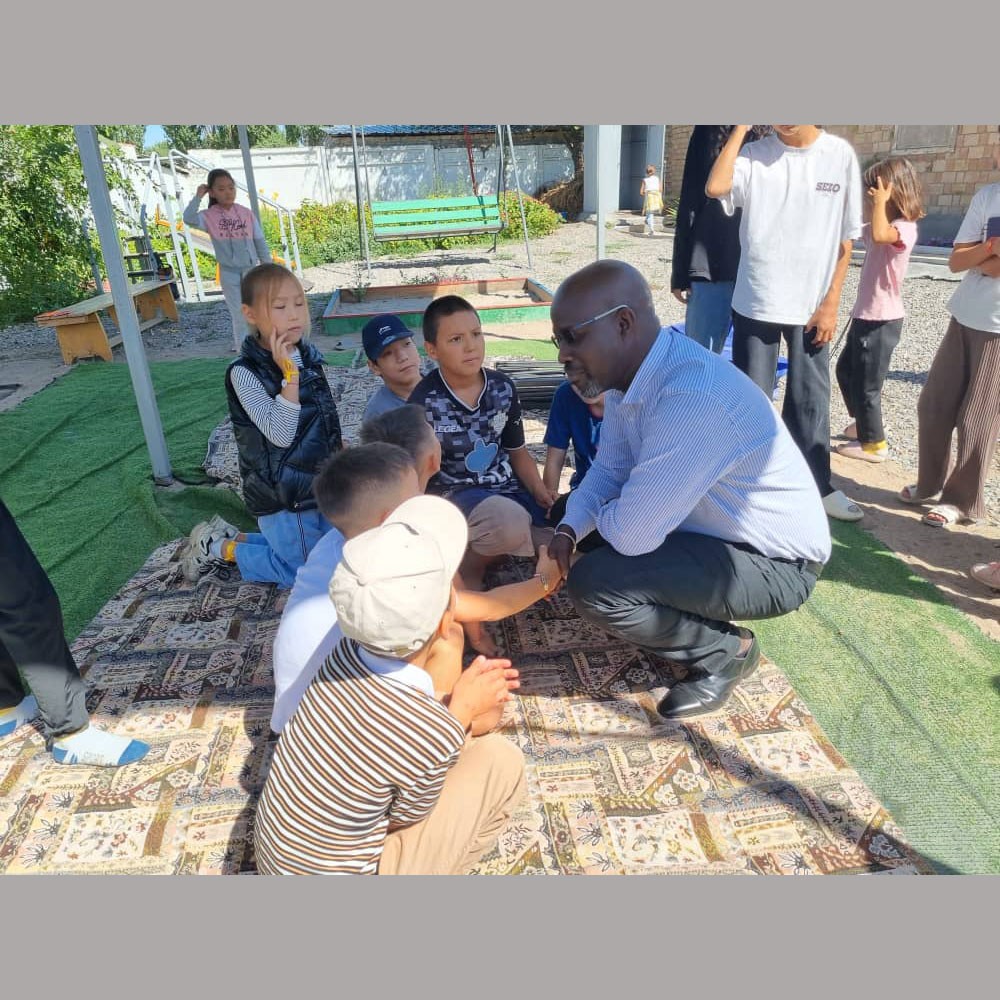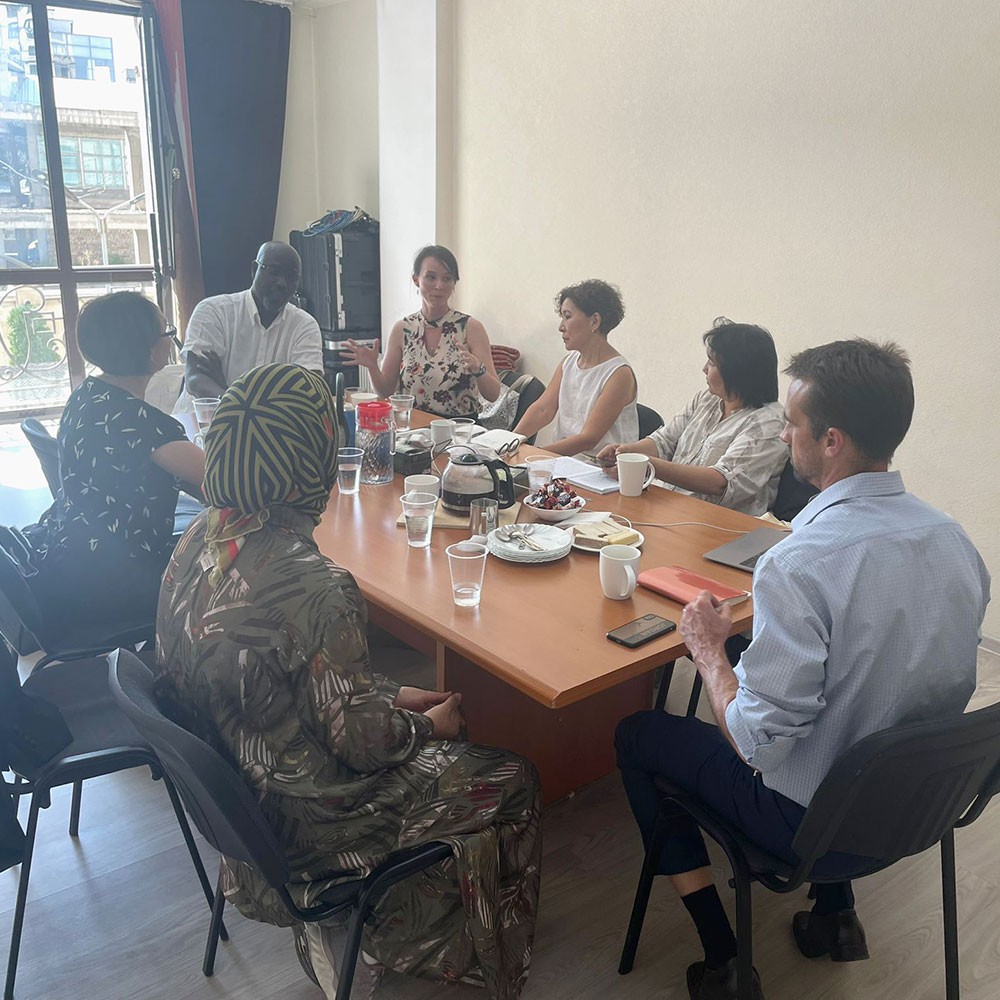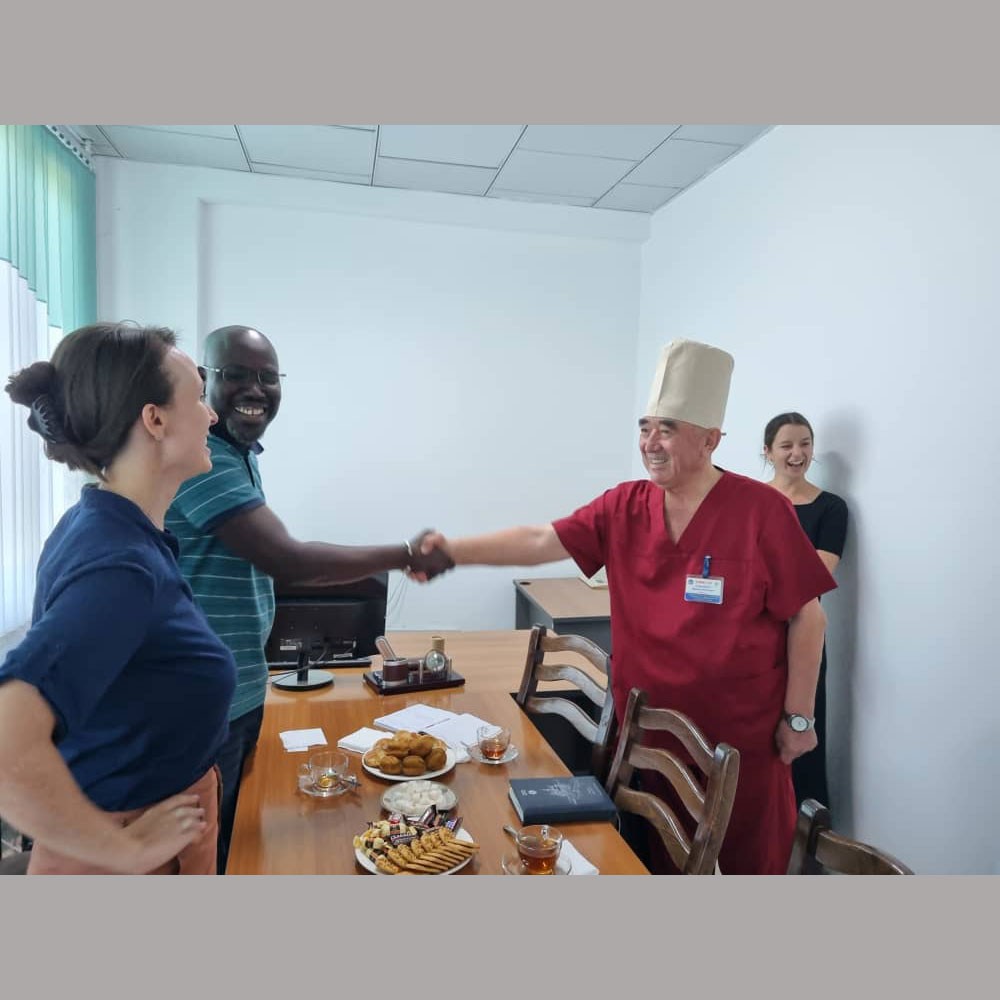Physiotherapist education and services were the focus of a recent visit to Kyrgyzstan that underscored significant interest in developing and modernising in-country rehabilitation provision and practice.
The scoping visit, 19-23 August 2024, was a partnership between World Physiotherapy, Serve. Teach. Learn. Innovate. (STLI), and UPLIFT Charity. During a series of meetings with key stakeholders (including representatives of non-government organisations (NGOs), medical institutions, and government bodies), the partnership team explored treatment methods, gaps in formal education and training, and a shortage of qualified physiotherapists and rehabilitation professionals.
The visit is part of World Physiotherapy’s development programme and follows on from our development programme activities to develop and launch the first entry level physiotherapist education programme in Tajikistan, one of Kyrgyzstan’s neighbouring countries/territories.
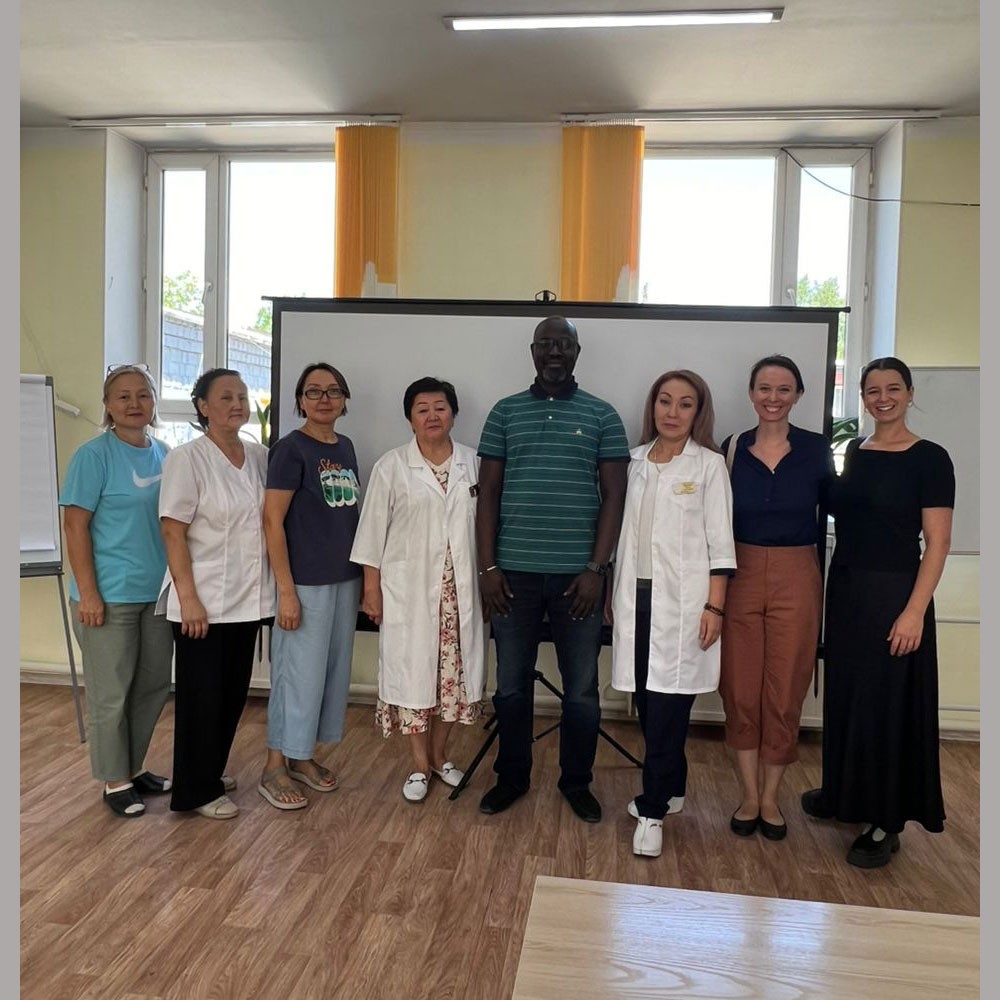
Sidy Dieye, World Physiotherapy head of programmes and development, said: “A major takeaway from the discussions was an understanding of the reliance on passive therapies, including electrical stimulation and massage. These methods contrast with the active approaches now widely used around the world.
“The visit also revealed a lack of structured educational programmes for physiotherapists, occupational therapists and other rehabilitation professions, leaving many practitioners without the necessary skills to meet modern standards.”
The partnership team found some rehabilitation centres, including private sector and overseas-trained professionals, were making efforts to modernise practices. However, these changes were limited to certain sectors, and there was a lack of systemic support. The Kyrgyz State Medical Academy (KGMA), a leading institution in medical education in Kyrgyzstan, started to reform its rehabilitation department in 2019 and progress is continuing. Some leaders in the academic sector have expressed interest and openness to evidence-based practices and desire to align with global standards.
NGOs have also played a key role in service delivery, particularly for children with disabilities. Organisations like UPLIFT Charity and Hand in Hand have been at the forefront of providing informal training for local therapists. However, most of the workforce lacks formal qualifications and there is a growing need for structured, long-term education programmes in rehabilitation.
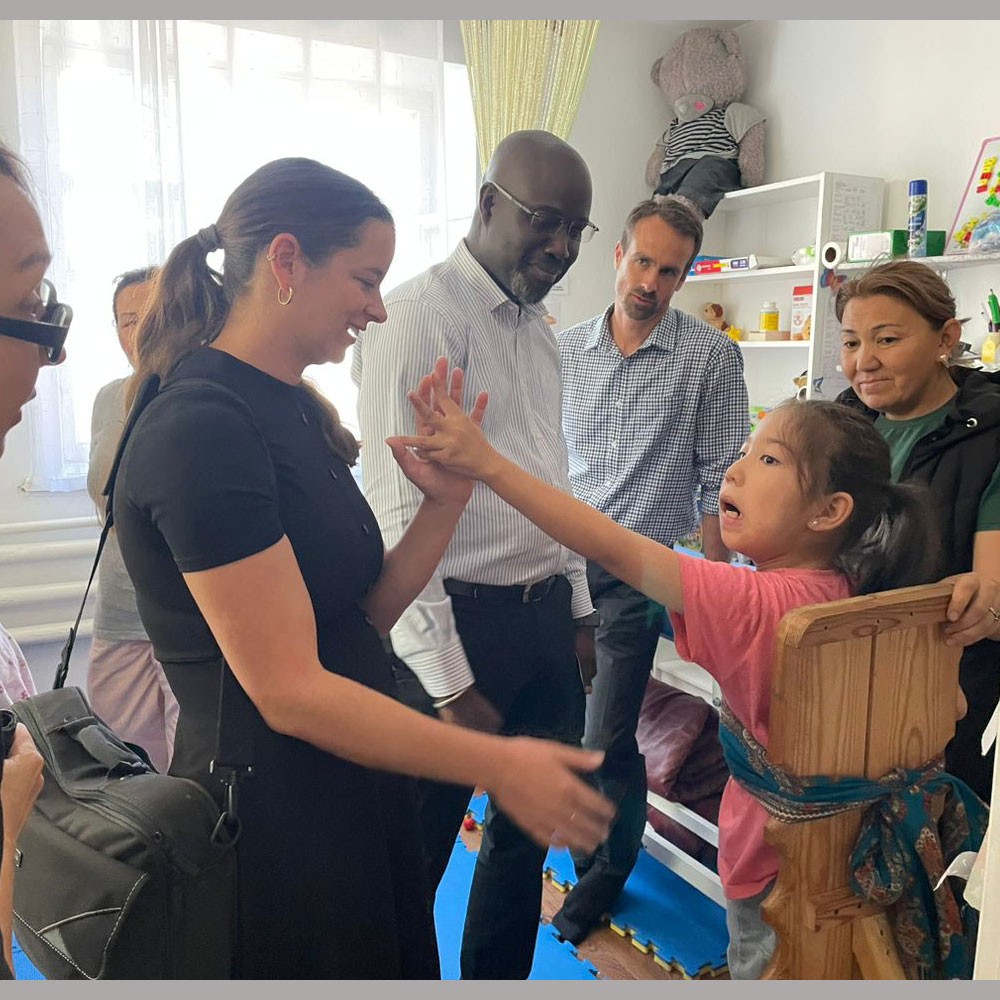
Sidy said: “Families of people with disabilities or illness are feeling the need and do not know where to turn for evidence based and affordable interventions. This could be a strategic opportunity to progress rehabilitation development because some key stakeholders are keen to support this initiative and respond to the call of the local population. There has been an expressed desire for rehabilitation to increase the influence of Kyrgyzstan in the region, building on the history of Kyrgyzstan being a hotspot of restorative therapy.”
During a meeting with various NGOs, stakeholders expressed interest in forming a rehabilitation interest group to focus on capacity building and the dissemination of knowledge across the different disciplines involved in rehabilitation, such as physiotherapy, occupational therapy, and speech and language therapy.
A number of international organisations and donors have demonstrated interest in supporting the development of Kyrgyzstan's rehabilitation sector. Agencies such as UNICEF, Japan International Cooperation Agency (JICA), and the British Embassy have shown commitment to partnering with local institutions to enhance education, training, and service delivery.
Sidy said: “Kyrgyzstan stands at a pivotal moment in its journey toward modernising its rehabilitation services. With growing international interest and local support, the country has the potential to transform its approach to physiotherapy and rehabilitation, ultimately improving healthcare outcomes for its population.
“Next steps include exploring grant opportunities, collaborative projects, and holding a stakeholders’ meeting in Kyrgyzstan.”

